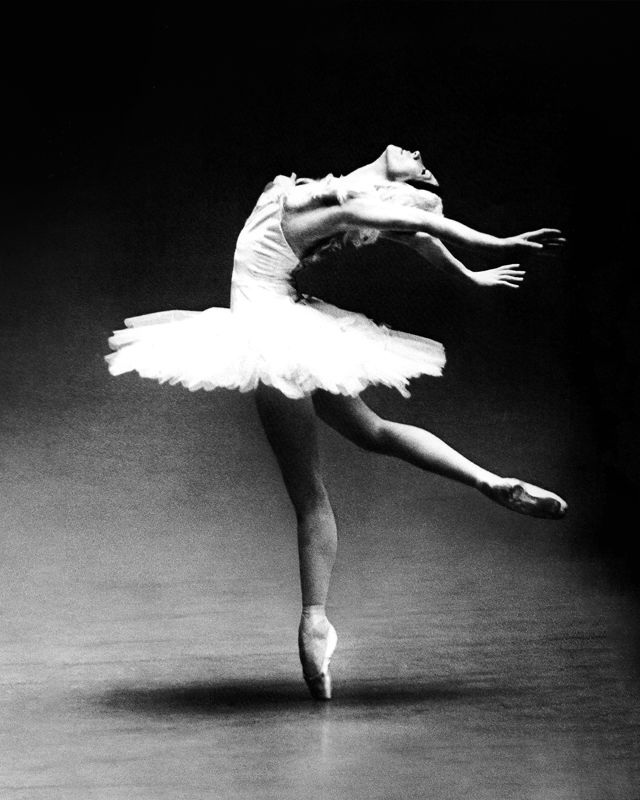Natalia Makarova
Renowned dancer, actress, and choreographer, Natalia Makarova stands as one of the world’s most celebrated ballerinas. She began her career in her native Leningrad where, upon graduating from the Vaganova School, she joined the Kirov Ballet rapidly rising to the rank of ballerina. She came to international prominence after dancing Giselle in London in 1961 with the Kirov Ballet. In 1970, while on tour with the Kirov in London, Makarova took the step, which changed her life forever by requesting asylum in Britain. She began her long association with American Ballet Theatre and with the Royal Ballet in 1972. She has appeared as a guest artist with ballet companies throughout the world.
Her vast repertory includes the classical repertoire and the ballets of the great contemporary choreographers including MacMillan, Robbins, Balanchine, Ashton, Tudor, Bejart, Petit, Neumeier, Tetley and Cranko. In 1985 she won the Evening Standard Award in London, presented by Princess Diana, for her performance of Cranko’s Onegin.
In 1980, Natalia Makarova staged and directed the full-length production of La Bayadere, making American Ballet Theatre the first Western company to acquire this work. Her production included for the first time since 1919 a reconstruction of the last act, with her choreography after Marius Petipa, restoring the original dramatic structure and impact of this early masterpiece. She has staged her production of La Bayadere for numerous companies around the world and Giselle, Swan Lake, Sleeping Beauty and Paquita.
Her television work includes the 4-Part ‘Ballerina’ Series, which she wrote and presented for the BBC; ‘Assoluta’; ‘Makarova Returns’; ‘In a Class of Her Own’ and ‘Natasha’. She has also been filmed in Swan Lake, Giselle, Romeo and Juliet, Other Dances and La Bayadere.
She made her musical comedy debut on Broadway in 1983 in On Your Toes, winning the Tony Award for Best Actress in a Musical and in 1984 she won the Laurence Olivier Award for Best Actress in London. In 1991, Makarova made her debut as a dramatic actress in Tovarich, in London’s West End. She appeared in England in Misalliance by George Bernard Shaw, and Blithe Spirit by Noel Coward. In Moscow and St. Petersburg she was in a by William Gibson called Two For the Seesaw.
On February 1, 1989, after 19 years’ absence, she was the first artist (defector) to be invited back to perform in the Soviet Union. She returned to her native Leningrad where she danced with the Kirov Ballet on the stage where she had begun her illustrious career.
Natalia Makarova received the prestigious Kennedy Center Honors Award in 2012, which was created “to provide National recognition to individuals who through their lifetime have made significant contributions to American culture through the performing arts.
In Moscow, in 2014, she was awarded the “Soul of Dance” by the Russian Ballet Journal and the Russian Ministry of Culture, which honors her for preserving the Russian heritage of classical ballet, of Marius Petipa and Lev Ivanov, through her productions in the West. In September 2023, she received the Petipa Life Achievement Award. She continues to stage classical ballets throughout the world passing on her knowledge to a new generation of dancers.
“Classical Ballet is a living art form, and each generation brings very special qualities that reflect the time, but tradition and quality should go together. Quality should always be at the highest level and then classical ballet will thrive. It is especially important for this art form to show the value of beauty and to save the spirituality of the sublime. There is something missing if you only execute the steps formalistically, without a higher spiritual connection. Ballet needs that connection to be transcendental.”
– Natalia Makarova
 Natalia Makarova / Photo: Dina Makaroff
Natalia Makarova / Photo: Dina Makaroff
Raymonda Suite,
New Work

